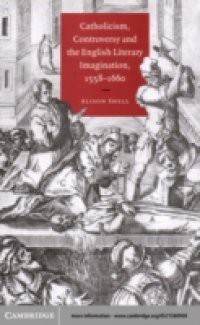The Catholic contribution to English literary culture has been widely neglected or misunderstood. This book sets out to rehabilitate a wide range of Catholic imaginative writing, while exposing the role of anti-Catholicism as an imaginative stimulus to mainstream writers in Tudor and Stuart England. It discusses canonical figures such as Sidney, Spenser, Webster and Middleton, those whose presence in the canon has been more fitful, and many who have escaped the attention of literary critics. Among the themes to emerge are the anti-Catholic imagery of revenge tragedy and the definitive contribution made by Southwell and Crashaw to the post-Reformation revival of religious verse in England. Alison Shell offers a fascinating exploration of the rhetorical stratagems by which Catholics sought to demonstrate simultaneous loyalties to the monarch and to their religion, and of the stimulus given to the Catholic literary imagination by the persecution and exile so many of these writers suffered.

